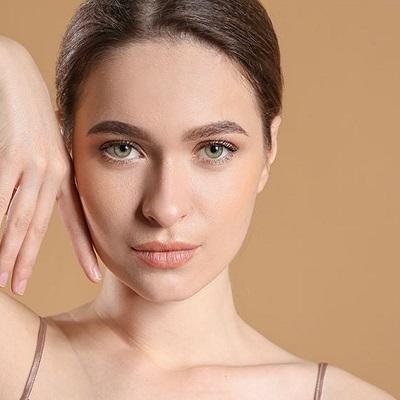What should I avoid after getting a skin rejuvenation session?

Undergoing skin rejuvenation in Islamabad can be an exciting step toward achieving youthful, glowing skin. Whether you've opted for laser resurfacing, microneedling, PRP, or a HydraFacial, post-treatment care is just as important as the procedure itself. Without proper aftercare, your skin may not heal properly, and you might not get the long-lasting results you were hoping for.
At trusted clinics like SKN Cosmetic Clinic, professionals guide you through each step of the treatment and post-care process, ensuring your skin heals beautifully. But even with that guidance, it’s essential to know what to avoid after your session to protect your skin and boost your results.
Why Post-Treatment Care Matters
Your skin is at its most vulnerable immediately after a rejuvenation session. Most treatments — especially lasers, chemical peels, or microneedling — trigger the skin’s natural healing process by creating controlled damage. During this healing period, any wrong move can delay recovery or even lead to irritation, infection, or hyperpigmentation.
Let’s break down the key things to avoid after your skin rejuvenation session so you can maximize your glow!
1. Avoid Direct Sun Exposure
After a skin rejuvenation treatment, your skin becomes more photosensitive. Direct sunlight can cause:
-
Pigmentation or dark spots
-
Increased redness
-
Delayed healing
-
Uneven skin tone
If you must go outdoors, wear a broad-spectrum SPF 50 sunscreen, wide-brimmed hat, and sunglasses. For at least 7–14 days post-treatment, minimize exposure, especially during peak UV hours (10 AM to 4 PM).
2. Don’t Use Harsh Skincare Products
It’s tempting to dive back into your full skincare routine, but your freshly treated skin needs a break. Avoid:
-
Retinol or Retinoids
-
Vitamin C serums
-
Alpha and Beta Hydroxy Acids (AHA/BHA)
-
Scrubs and exfoliants
-
Alcohol-based toners
Stick with gentle cleansers, fragrance-free moisturizers, and dermatologist-approved barrier creams for at least a week — or as advised by your aesthetician.
3. No Makeup for 24 to 48 Hours
Your skin is trying to repair itself. Applying makeup — especially foundations or powders — can:
-
Clog your pores
-
Introduce bacteria
-
Cause irritation or breakouts
Give your skin a breather and let it heal. Once the redness or sensitivity subsides, you can gradually reintroduce light makeup — preferably mineral-based formulas.
4. Don’t Touch or Pick at Your Skin
It might be tempting to touch your face or peel off any flaking skin, but please don’t:
-
Picking can lead to scars or dark spots
-
Touching can transfer dirt and bacteria
-
Over-exfoliation slows healing
Let your skin shed naturally. If dryness or itchiness occurs, apply a hydrating serum or calming balm recommended by your provider.
5. Skip the Gym and Hot Environments
High temperatures, sweating, or heavy workouts within the first 48 hours can:
-
Increase inflammation
-
Open pores to bacteria
-
Cause excessive redness or discomfort
Avoid:
-
Saunas
-
Steam rooms
-
Hot showers or baths
-
Intense cardio
Cool, dry environments are your skin’s best friend for the first few days post-treatment.
6. Avoid Smoking and Alcohol
Both alcohol and smoking can interfere with your body’s healing process. Alcohol dehydrates the skin and expands blood vessels, while smoking reduces oxygen delivery to your skin cells.
Avoid them for at least 3 to 5 days after your session to encourage faster healing and more vibrant results.
7. Don’t Use Unclean Pillowcases or Towels
Freshly treated skin is prone to bacterial infection. Make sure your environment is clean:
-
Use a clean pillowcase daily for the first week
-
Avoid touching your face with towels that haven't been freshly washed
-
Sanitize your phone screen before each use
A small hygiene upgrade can make a big difference in your post-treatment glow!
8. Avoid Waxing or Hair Removal Treatments
Laser or exfoliating skin treatments already make your skin sensitive. Adding waxing, threading, or depilatory creams on top of that can cause:
-
Burns
-
Irritation
-
Skin tears or infections
Give it at least 10–14 days before resuming any hair removal on the treated area.
9. Say No to Chlorinated Pools or Beaches
Chlorine and saltwater can irritate your treated skin and strip away its protective barrier. Swimming in pools or oceans can introduce unwanted bacteria and delay the healing process.
If you’re planning a beach trip or swim session, wait at least a week or until your provider clears you.
10. Don’t Ignore Professional Advice
Your dermatologist or aesthetician will provide a customized aftercare plan tailored to your treatment and skin type. Follow it religiously.
If they recommend a particular serum or routine, it’s not just upselling — it's based on how your skin reacts to the treatment. Ignoring professional advice is one of the top reasons people don’t get the best results from their session.
How Long Should I Be Cautious?
While some treatments only require a couple of days of careful aftercare, deeper procedures like laser resurfacing or PRP might require up to 2 weeks of strict precautions. Always consult your provider before jumping back into your regular lifestyle.
Final Thoughts: Your Skin Deserves the Best
A skin rejuvenation session can be a game-changer for your confidence and complexion. But the secret to long-lasting results lies in what you do after your appointment. From avoiding sun exposure to choosing the right skincare, small efforts go a long way.
If you're considering Skin Rejuvenation in Islamabad, always choose a certified clinic with experienced dermatologists who prioritize your safety and satisfaction. That’s why many people trust the SKN Cosmetic Clinic — a leading name in aesthetic treatments and dermatology in the capital.





